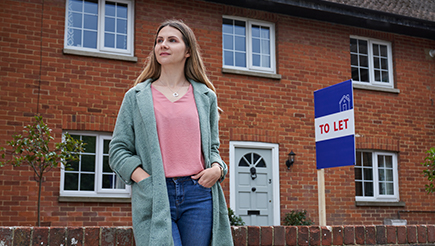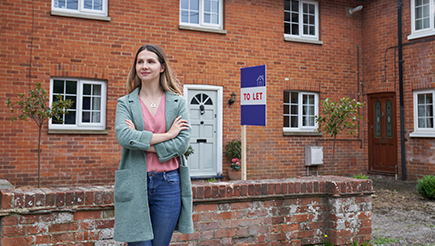The Right to Rent legislation has been set out by the UK Government as part of its efforts to ensure that all those renting in England have the required permissions to do so.
Under the rules, landlords are responsible for ensuring their tenants are allowed to live and rent a property in this country. But in practice, what does the Right to Rent mean for you as a landlord?
What is the landlord’s responsibility?
It’s your responsibility to ensure your new tenants are allowed to be in the UK, and to do this before their tenancy begins. Make sure you check everyone, as it’s against the law to only focus on those you think aren’t UK citizens.
You need to check everyone over 18 who’ll be living at the property, not just the person who's the named tenant on the paperwork. You don’t, however, need to check anyone who was living in your property before the legislation came about. The start date varies between locations, so you may want to confirm this with your local authority.
Carrying out tenant checks
You’re required to make 'reasonable checks', which means checking your potential tenants’ documents to ensure they’re legally allowed to live here.
You’re looking for documents that prove the person is who they say they are (so you'll need a photographic ID), and that they’re allowed to live in the UK. Proof of ID and residence includes British passports and biometric residence permits. This government guide lists the acceptable documents and this one gives a detailed account of what you need to look out for.
Make sure you see the original documents and always check them with the tenant(s) present. Take copies before giving them back and, if you have any concerns, call the government's landlord's helpline on 0300 069 9799.
Keep it courteous
Tenant checks can seem like an invasive process. Calmly explain that this is new legislation which all landlords have to comply with. Reassure people that their copied documents will be kept securely under Data Protection Law, and always treat the potential tenants with courtesy and respect.
You’ll also need to let your tenants know that if another adult comes to live with them they must inform you, as you’ll need to carry out checks on any new residents too.
Business as usual
Right to Rent checks are now part of the routine of starting a new tenancy. Your prospective tenants will start to expect it, in much the same way as we’re all used to proving our right to work in the UK when we apply for jobs.
You may not appreciate the extra paperwork, but not checking can result in prosecution. There’s a fine of up to £3,000 if you let to someone without the Right to Rent, so it’s not a risk landlords can afford to take. But happily, like all new legislation it will quickly become second nature.
Unlike tenant checks, landlord insurance is not a legal requirement. However, for peace of mind and protection against unforeseen events, you may want to have a look at AXA’s residential landlord insurance.






